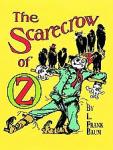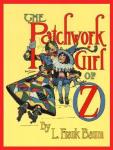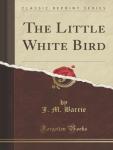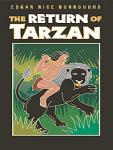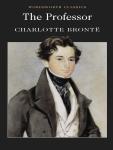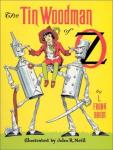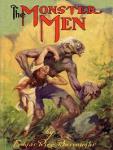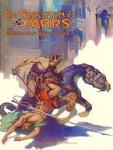The Lifted Veil
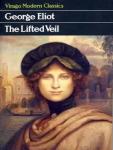
This book is a novella by George Eliot, first published in 1859. Quite unlike the realistic fiction for which Eliot is best known, The Lifted Veil explores themes of extrasensory perception, the essence of physical life, possible life after death, and the power of fate.The unreliable narrator, Latimer, believes that he is cursed with an otherworldly ability to see into the future and the thoughts of other people. His unwanted "gift" seems to stem from a severe childhood illness he suffered while attending school in Geneva. Latimer is convinced of the existence of this power, and his two initial predictions do come true the way he has envisioned them: a peculiar "patch of rainbow light on the pavement" and a few words of dialogue appear to him exactly as expected. Latimer is revolted by much of what he discerns about others' motivations.Latimer becomes fascinated with Bertha, his brother's cold and coquettish fiancée, because her mind and motives remain atypically closed to him. After his brother's death, Latimer marries Bertha, but the marriage disintegrates as he recognizes Bertha's manipulative and untrustworthy nature. Latimer's friend, scientist Charles Meunier, performs a blood transfusion from himself to Bertha's recently deceased maid. For a few moments the maid comes back to life and accuses Bertha of a plot to poison Latimer. Bertha flees and Latimer soon dies as he had himself foretold at the start of the narrative.
Related Books
Author other works
-
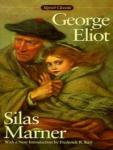
Silas Marner
George Eliot
Silas Marner: The Weaver of Raveloe is a novel by George Eliot. Her third novel, it was first published in 1861. An outwardly simple tale of a linen weaver, in its strong realism it represents one of Eliot's most sophisticated treatments of her attitude to religion.The novel is set in the early years of the 19th century. Silas Marner, a weaver, is a member of a small Calvinist congregation in Lantern Yard, a slum street in an unnamed city in Northern England. He is falsely accused of stealing the congregation's funds while watching over the very ill deacon of the group. Two clues are given against Silas: a pocket-knife and the discovery of the bag formerly containing the money in his own house. There is a strong suggestion that Silas's best friend, William Dane, has framed him, since Silas had lent the pocket-knife to William a short while before. Silas is proclaimed guilty. The woman he was to marry casts him off, and later marries William Dane. With his life shattered and his heart broken, he leaves Lantern Yard and the city.Marner heads south to the Midlands and settles near the village of Raveloe, where he lives as a recluse, lapsing into bouts of catalepsy, and existing only for work and the gold he has hoarded from his earnings. The gold is stolen by Dunstan ('Dunsey') Cass, the dissolute younger son of Squire Cass, the town's leading landowner. Silas sinks into a deep gloom, despite the villagers' attempts to aid him. Dunsey disappears, but little is made of this not unusual behaviour, and no association is made between him and the theft.Godfrey Cass, Dunsey's elder brother, also harbours a secret. He is married to, but estranged from, Molly Farren, an opium-addicted woman of low birth. This secret threatens to destroy Godfrey's blooming relationship with Nancy, a young woman of higher social and moral standing. On a winter's night, Molly tries to make her way into town with her two-year-old child, to prove that she is Godfrey's wife and ruin him. On the way she takes opium, becomes disorientated and sits down to rest in the snow, child in arm. The child wanders from her mother's still body into Silas' house. Upon discovering the child, Silas follows her tracks in the snow and discovers the woman dead. Godfrey also arrives at the scene, but resolves to tell no one that she was his wife.Silas decides to keep the child and names her Eppie, after his deceased mother and his sister, Hephzibah. Eppie changes Silas' life completely. Silas has been robbed of his material gold but has it returned to him symbolically in the form of golden-haired Eppie. Godfrey Cass is now free to marry Nancy, but continues to conceal the existence of his first marriage—and child—from her. He continues to aid Marner, however, in caring for Eppie, with occasional financial gifts. More practical help and support in bringing up a child is given by Dolly Winthrop, a kindly neighbour of Marner's. Dolly's help and advice help Marner not only to bring up Eppie but also to integrate into village society.Sixteen years pass, and Eppie grows up to be the pride of the town. She has a strong bond with Silas, who through her has found inclusion and purpose in life. Meanwhile, Godfrey and Nancy mourn their own childless state. Eventually, the skeleton of Dunstan Cass—still clutching Silas' gold—is found at the bottom of the stone quarry near Silas' home, and the money is duly returned to Silas. Shocked by this revelation, and coming to the realization of his own conscience, Godfrey confesses to Nancy that Molly was his first wife and that Eppie is his child. They hope to raise her as a gentleman's daughter, which for Eppie would mean forsaking Silas. Eppie politely refuses, saying, "I can't think o' no happiness without him."Silas is never able to clear up the details of the robbery that caused his exile from Lantern Yard, as his old neighbourhood has been "swept away" and replaced by a large factory. No one seems to know what happened to Lantern Yard's inhabitants. However, Silas contentedly resigns himself to the fact that he now leads a happier existence among his family and friends. In the end, Eppie marries a local boy, Aaron, son of Marner's helpful neighbour Dolly. Aaron and Eppie move into Silas' new house, courtesy of Godfrey. Silas' actions through the years in caring for Eppie have provided joy for everyone and the extended family celebrates its happiness.
-
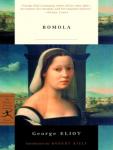
Romola
George Eliot
Florence, 1492: Christopher Columbus has sailed towards the New World, and Florence has just mourned the death of its legendary leader, Lorenzo de' Medici. In this setting, a Florentine trader meets a shipwrecked stranger, who introduces himself as Tito Melema, a young Italianate-Greek scholar. Tito becomes acquainted with several other Florentines, including Nello the barber and a young girl named Tessa. He is also introduced to a blind scholar named Bardo de' Bardi, and his daughter Romola. As Tito becomes settled in Florence, assisting Bardo with classical studies, he falls in love with Romola. However, Tessa falls in love with Tito, and the two are "married" in a mock ceremony.Tito learns from Fra Luca, a Dominican monk, that his adoptive father has been forced into slavery and is asking for assistance. Tito introspects, comparing filial duty to his new ambitions in Florence, and decides that it would be futile to attempt to rescue his adoptive father. This paves the way for Romola and Tito to marry. Fra Luca shortly thereafter falls ill and before his death he speaks to his estranged sister, Romola. Ignorant of Romola's plans, Fra Luca warns her of a vision foretelling a marriage between her and a mysterious stranger who will bring pain to her and her father. After Fra Luca's death, Tito dismisses the warning and advises Romola to trust him. Tito and Romola become betrothed at the end of Carnival, to be married at Easter after Tito returns from a visit to Rome.The novel then skips ahead to November 1494, more than eighteen months after the marriage. In that time, the French-Italian Wars have seen Florence enter uneasy times. Piero de' Medici, successor to the lordship of Florence, has been exiled from the city for his ignominious surrender to the invading French king, Charles VIII. Girolamo Savonarola preaches to Florentines about ridding the Church and the city of scourge and corruption. In this setting, Tito, now a valued member of Florentine society, participates in the reception for the French invaders. Tito encounters an escaped prisoner, who turns out to be his adopted father, Baldassare. Panicked and somewhat ashamed of his earlier inaction, Tito denies knowing the escaped prisoner and calls him a madman. Baldassare escapes into the Duomo, where he swears revenge on his unfilial adoptive son. Growing ever more fearful, Tito plans to leave Florence. To do this, he betrays his late father-in-law, Bardo, who died some months earlier, by selling the late scholar's library. This reveals to Romola the true nature of her husband's character. She secretly leaves Tito and Florence, but is persuaded by Savonarola to return to fulfil her obligations to her marriage and her fellow Florentines. Nevertheless, the love between Romola and Tito has gone.Again the action of the novel moves forward, from Christmas 1494 to October 1496. In that time, Florence has endured political upheaval, warfare and famine. Religious fervour has swept through Florence under the leadership of Savonarola, culminating in the Bonfire of the Vanities. The League of Venice has declared war on the French king and his Italian ally, Florence. Starvation and disease run rampant through the city. Romola, now a supporter of Savonarola, helps the poor and sick where she can. Meanwhile, Tito is embroiled in a complex game of political manoeuvring and duplicitous allegiances in the new Florentine government. Mirroring this, he has escaped attempts by Baldassare to both kill and expose him, and maintains a secret marriage to Tessa, with whom he has fathered two children. Romola becomes defiant of Tito, and the two manoeuvre to thwart each other's plans. Romola meets an enfeebled Baldassare, who reveals Tito's past and leads her to Tessa.Political turmoil erupts in Florence. Five supporters of the Medici family are sentenced to death, including Romola's godfather, Bernardo del Nero. She learns that Tito has played a role in their arrest. Romola pleads with Savonarola to intervene, but he refuses. Romola's faith in Savonarola and Florence is shaken, and once again she leaves the city. Meanwhile, Florence is under papal pressure to expel Savonarola. His arrest is effected by rioters, who then turn their attention to several of the city's political elite. Tito becomes a target of the rioters, but he escapes the mob by diving into the Arno River. However, upon leaving the river, Tito is killed by Baldassare.Romola makes her way to the coast. Emulating Gostanza in Boccacio's The Decameron (V, 2), she drifts out to sea in a small boat to die. However, the boat takes her to a small village affected by the Plague, and she helps the survivors. Romola's experience gives her a new purpose in life and she returns to Florence. Savonarola is tried for heresy and burned at the stake, but for Romola his influence remains inspiring. Romola takes care of Tessa and her two children, with the help of her older cousin. The story ends with Romola imparting advice to Tessa's son, based on her own experiences and the influences in her life.
-
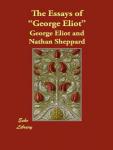
The Essays of
George Eliot
A selection of George Eliot's essays collected, arranged and with an introduction by Nathan Sheppard. First published in 1883.
-

Daniel Deronda
George Eliot
This is a novel by George Eliot, first published in 1876. It was the last novel she completed and the only one set in the contemporary Victorian society of her day. Its mixture of social satire and moral searching, along with a sympathetic rendering of Jewish proto-Zionist and Kabbalistic ideas has made it a controversial final statement of one of the greatest of Victorian novelists.Daniel Deronda contains two main strains of plot, united by the title character. The novel begins in mid-story in late August 1865 with the meeting of Daniel Deronda and Gwendolen Harleth in the fictional town of Leubronn, Germany. Daniel finds himself attracted to, but wary of, the beautiful, stubborn, and selfish Gwendolen, whom he sees lose all her winnings in a game of roulette. The next day, Gwendolen receives a letter from her mother telling her that the family is financially ruined and asking her to come home. In despair at losing all her money, Gwendolen pawns a necklace and debates gambling again in order to make her fortune. In a fateful moment, however, her necklace is returned to her by a porter, and she realises that Daniel saw her pawn the necklace and redeemed it for her. From this point, the plot breaks off into two separate flashbacks, one which gives us the history of Gwendolen Harleth and one of Daniel Deronda.In October 1864, soon after the death of Gwendolen's stepfather, Gwendolen and her family move to a new neighbourhood. It is here that she meets Henleigh Mallinger Grandcourt, a taciturn and calculating man, who proposes marriage shortly after their first meeting. At first open to his advances, she eventually flees (to the German town in which she meets Deronda) upon discovering that he has several children with his mistress, Lydia Glasher. This portion of the novel sets Gwendolen up as a haughty, selfish, yet affectionate daughter, admired for her beauty but suspected by many in society because of her satirical observations and somewhat manipulative behaviour. She is also prone to fits of terror that shake her otherwise calm and controlling exterior.Deronda has been raised by a wealthy gentleman, Sir Hugo Mallinger. Deronda's relationship to Sir Hugo is ambiguous and it is widely believed, even by Deronda, that he is Sir Hugo's illegitimate son, though no one is certain. Deronda is an intelligent, light-hearted and compassionate young man who cannot quite decide what to do with his life, and this is a sore point between him and Sir Hugo, who wants him to go into politics. One day in late July 1864, as he is boating on the Thames, Deronda rescues a young Jewish woman, Mirah Lapidoth, from attempting to drown herself. He takes her to the home of friends of his, and it is discovered that Mirah is a singer. She has come to London to search for her mother and brother after running away from her father, who kidnapped her when she was a child and forced her into an acting troupe. She ran away from him finally because she feared he was planning to sell her into an immoral relationship with a friend of his. Moved by her tale, Deronda undertakes to help her look for her mother (who turns out to have died years earlier) and brother and through this, he is introduced to London's Jewish community. Mirah and Daniel grow closer and Daniel, anxious about his growing affection for her, leaves for a short time to join Sir Hugo in Leubronn, where he and Gwendolen first meet.From here, the story picks up in "real time," and Gwendolen returns from Germany in early September 1865 because her family has lost its fortune in an economic downturn. Gwendolen, having an antipathy to marriage, the only respectable way in which a woman could achieve financial security, attempts to avoid working as a governess by pursuing a career in singing or on the stage, but a prominent musician tells her she does not have the talent. In order to save herself and her family from relative poverty, she marries the wealthy Grandcourt, whom she believes she can manipulate to maintain her freedom to do what she likes, despite having promised Mrs. Glasher she would not marry him and fearing that it is a mistake.Deronda, searching for Mirah's family, meets a consumptive visionary named Mordecai. Mordecai passionately proclaims his wish that the Jewish people retain their national identity and one day be restored to their Promised Land. Because he is dying, he wants Daniel to become his intellectual heir and continue to pursue his dream and be an advocate for the Jewish people. In spite of being strongly drawn to Mordecai, Deronda hesitates to commit himself to a cause that seems to have no connection to his own identity. Deronda's desire to embrace Mordecai's vision becomes stronger when they discover Mordecai is the brother Mirah has known by the name Ezra and has been seeking. Still, Deronda is not a Jew and cannot reconcile this fact with his affection and respect for Mordecai/Ezra, which would be necessary for him to pursue a life of Jewish advocacy.Gwendolen, meanwhile, has been emotionally crushed by her cold, self-centered, and manipulative husband. She is consumed with guilt for disinheriting Lydia Glasher's children by marrying their father. On Gwendolen's wedding day, Mrs. Glasher cursed her and told her she would suffer for her treachery, which only exacerbates Gwendolen's feelings of dread and terror. During this time, Gwendolen and Deronda meet regularly, and Gwendolen pours out her troubles to him whenever they meet. During a trip to Italy, Grandcourt is knocked from his boat into the water and drowns. Gwendolen, who was present, is consumed with guilt because she had long wished he would die, although after some hesitation she jumped into the Mediterranean in a futile attempt to save him. Deronda, also in Italy to meet his Jewish mother (whose identity Sir Hugo has finally revealed), comforts Gwendolen and advises her. In love with Deronda, Gwendolen hopes for a future with him, but he urges her onto a path of righteousness in which she will help others in order to alleviate her suffering.Deronda meets his mother and learns that she was a famous opera singer with whom Sir Hugo was once in love. She tells him that her father, a physician and strictly pious Jew, forced her to marry her cousin whom she did not love, despite her resentment of the rigid piety of her childhood. Daniel was the only child of that union, and on her husband's death, she asked the devoted Sir Hugo to raise her son as an English gentleman, never to know that he was Jewish. Upon learning of his true origins, Deronda finally feels comfortable with his love for Mirah, and on his return to England in October 1866, he tells Mirah of his love for her. Daniel commits himself to be Ezra/Mordecai's disciple, and shortly after Deronda's marriage, Ezra/Mordecai dies with Daniel and Mirah at his side. Before Daniel marries Mirah, he goes to Gwendolen to tell her about his origins, his decision to go to "the East" (per Ezra/Mordecai's wish), and his betrothal to Mirah. Gwendolen is devastated by the news, but it becomes a turning point in her life, inspiring her to finally say, "I shall live." She sends him a letter on his wedding day, telling him not to think of her with sadness but to know that she will be a better person for having known him. The newly-weds are all prepared to set off for "the East", with Mordecai, when Mordecai dies in their arms, and the novel ends.
-
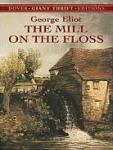
The Mill on the Floss
George Eliot
This is a novel by George Eliot (Mary Ann Evans), first published in three volumes in 1860 by William Blackwood.The novel details the lives of Tom and Maggie Tulliver, a brother and sister growing up at Dorlcote Mill on the River Floss at its junction with the more minor River Ripple near the village of St. Ogg's in Lincolnshire, England. Both the river and the village are fictional. The novel is most probably set in the 1820s - a number of historical references place the events in the book after the Napoleonic Wars but before the Reform Act of 1832.The novel spans a period of 10 to 15 years, from Tom’s and Maggie’s childhood up until their deaths in a flood on the Floss. The book is fictional autobiography in part, reflecting the disgrace that George Eliot (Mary Ann Evans) herself experienced while in a lengthy relationship with a married man, George Henry Lewes.Maggie Tulliver holds the central role in the book. The story begins when she is 9 years old, 13 years into her parent's marriage. Her relationship with her older brother Tom, and her romantic relationships with Philip Wakem, a hunchbacked, sensitive, and intellectual friend, and with Stephen Guest, a vivacious young socialite in St. Ogg's and assumed fiancé of Maggie’s cousin Lucy Deane, constitute the most significant narrative threads.Tom and Maggie have a close yet complex bond, which continues throughout the novel. Their relationship is coloured by Maggie's desire to recapture the unconditional love her father provides before his death. Tom’s pragmatic and reserved nature clashes with Maggie’s idealism and fervor for intellectual gains and experience. Various family crises, including bankruptcy, Mr. Tulliver’s rancorous relationship with Philip Wakem’s father, which results in the loss of the mill, and Mr. Tulliver’s untimely death, serve both to intensify Tom’s and Maggie’s differences and to highlight their love for each other. To help his father repay his debts, Tom leaves his school to enter a life of business. He eventually finds a measure of success, restoring the family’s former estate. Meanwhile Maggie languishes in the impoverished Tulliver home, her intellectual aptitude wasted in her socially isolated state. She passes through a period of intense spirituality, during which she renounces the world, spurred by Thomas à Kempis’s The Imitation of Christ.This renunciation is tested by a renewed friendship with Philip Wakem, with whom she had developed a friendship while he was a fellow pupil with Tom. Against the wishes of Tom and her father, who both despise the Wakems, Maggie secretly meets with Philip, and together they go for long walks through the woods. The relationship they forge is founded partially in Maggie’s heartfelt pity for broken and neglected human beings, as well as an outlet for her intellectual romantic desires. Philip’s and Maggie’s attraction is, in any case, inconsequential because of the family antipathy. Philip manages to coax a pledge of love from Maggie. When Tom discovers the relationship between the two, however, he forces his sister to renounce Philip, and with him her hopes of experiencing the broader, more cultured world he represents.Several more years pass, during which Mr. Tulliver dies. Lucy Deane invites Maggie to come and stay with her and experience the life of cultured leisure that she enjoys. This includes long hours conversing and playing music with Lucy's suitor, Stephen Guest, a prominent St. Ogg’s resident. Stephen and Maggie, against their rational judgments, become attracted to each other. The complication is further compounded by Philip Wakem’s friendship with Lucy and Stephen; he and Maggie are reintroduced, and Philip’s love for her is rekindled, while Maggie, no longer isolated, enjoys the clandestine attentions of Stephen Guest, putting her past professions for Philip in question. In the event Lucy intrigues to throw Philip and Maggie together on a short rowing trip down the Floss, but when Stephen unwittingly takes a sick Philip’s place, and Maggie and Stephen find themselves floating down the river, negligent of the distance they have covered, he proposes they board a passing boat to the next substantial city, Mudport, and get married. Maggie is too tired to argue about it. Stephen takes advantage of her weariness and hails the boat. They are taken on board the boat, and during the trip to Mudport, Maggie struggles between her love for Stephen and her duties to Philip and Lucy, contracted as it were in her past, when she was poor and isolated, and dependent on either of them for what good her life contained. Upon arrival in Mudport she rejects Stephen and makes her way back to St. Ogg's, where she lives for a brief period as an outcast, Stephen having fled to Holland. Although she immediately goes to Tom for forgiveness and shelter, he roughly sends her away, telling her that she will never again be welcome under his roof. Both Lucy and Philip forgive her, she in a moving reunion, he in an eloquent letter.Maggie’s brief exile ends when the river floods. The flood is considered by some to be a deus ex machina. Those who do not support this view cite the frequent references to flood as a foreshadowing which makes this natural occurrence less contrived. Having struggled through the waters in a boat to find Tom at the old mill, she sets out with him to rescue Lucy Deane and her family. In a brief tender moment, the brother and sister are reconciled from all past differences. When their boat capsizes, the two drown in an embrace, thus giving the book its Biblical epigraph, “In their death they were not divided."
